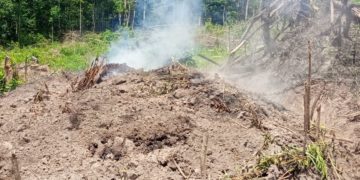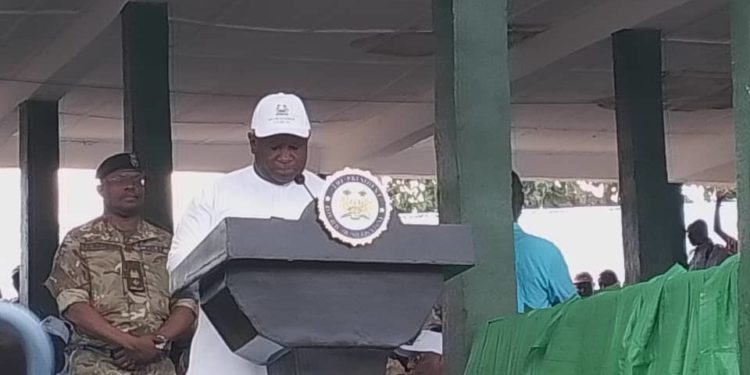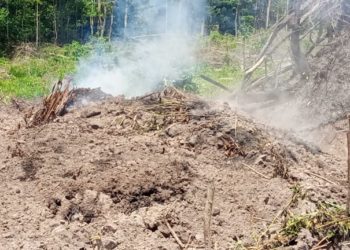By Brima Sannoh in Pujehun
If all goes as planned, Sierra Leone will not only be food self-sufficient in five years, but it will also export to other countries, according to a new initiative launched by President Julius Maada Bio.
The initiative called ‘Feed Salone,’ is one of Bio’s ‘Big Five’ development agenda for the country during his second and final term as president. It was launched at the opening ceremony of the three-day occasion marking World Food Day 2023 on Monday.
“In the next five years, the aim is to harness Sierra Leone’s full agricultural potential to feed ourselves and sell food to others, by improving on the quality of the lives of our people, by engaging citizens especially the farmers,” Bio said at the event being held at the PDEC Field in Pujehun Town.
The opening session brought together thousands of farmers from all over the country, as well as international development partners.
World Food Day is celebrated annually on October 16, to commemorate the date of the founding of the United Nations Food and Agricultural Organization (FAO) in 1945. It is basically used to create awareness on the issues around food, poverty and hunger, and to inspire global efforts to produce enough food for the world’s population.
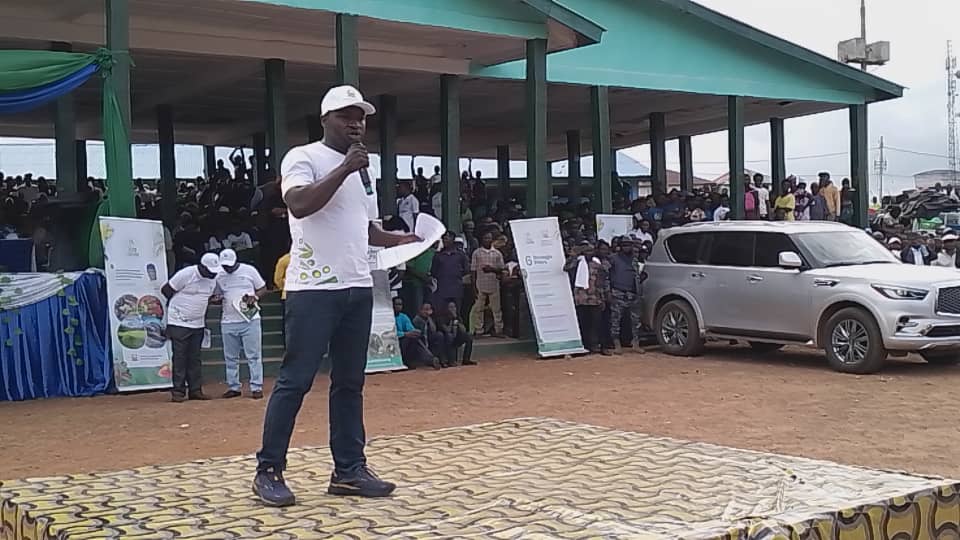
This year’s theme for the event is ‘Water is life, Water is food. Leave no one behind.’
Officials say the theme is aimed at spreading awareness of water scarcity and the link between food and water.
According to President Bio, as the world highlights the importance of food security as a means to end hunger worldwide, his government takes the ‘Feed Salone’ Programme as the blueprint for a food secure Sierra Leone, and he pledged to end hunger through it.
Bio said agriculture in most part of the world is the largest consumer of water, noting that the strategic use of water in the sector is therefore key. The Sierra Leonean leader also noted the country’s endowment with “vast” arable land must be exploited for the good of its population.
“Whether you are a student, minister or ordinary Sierra Leonean, in the next five years, it is on all of us to make sure that we are able to feed ourselves as a people and start to export to other countries. This must be a determination for everyone,” he stressed.
Bio bemoaned the fact that Sierra Leone is enriching other nations through its purchase of their products, something he said the country must work hard to stop.
“That can only be done if we decide to grow our own food,” he said, adding “We must all do our part to be a thriving and resilient economy through agriculture.”
“These are bold decisions and nothing less than bold decisions are necessary to transform Sierra Leone’s agriculture sector and unlock the huge potential together to feed salone,” he added.
Minister of Agriculture and Forestry, Dr. Henry Musa Kpaka, said the theme for this year’s celebration was a reminder for everyone about the dire need to include everybody in the food system.
“Sierra Leone has been blessed with fertile soil and abundant rain and sunshine. The country records a huge fall of rain at about 2,100 millimeters each year, but we have not yet utilized these endowments to feed ourselves,” Dr. Kpaka.
In Sierra Leone, commemoration of World Food Day is rotated every year across the districts. Last year’s event was hosted in the northern Koinadugu District.
The choice of Pujehun for this year’s event is important in that, despite being rich in agricultural potential, as many of the country’s other districts, it has not really made use of this.
The southern district, for instance, has one of the largest piece of land good for rice production. But it has remained largely underutilized. Majority of the inhabitants of the district depend on subsistence farming and is also one of the food insecure districts in the country, data from both national and international nongovernmental organizations show.
Minister Kpaka alluded to Sierra Leone’s apparent failure to take full advantage of its potential in the sector, promising that with the ‘Feed Salone’ initiative, the story is bound to change.
“My ministry will work alongside the Ministry of Finance, our partners, the Parliament, our farmers and other key sectors to ensure that we judiciously utilize the resources that will be put into this programme to ensure that it succeeds,” he said.
World Food Programme Country Director for Sierra Leone, Eva Bonsion, said a total of 780 million people worldwide were hungry, and that in 2015 there was an attempt to put the strategic goals in place in which a lot of progress had been made in that direction.
“What we need to do is to work together, and the UN family is here to support the people of Sierra Leone,” she said, adding: “We are here to work on resilient agriculture that includes climate action, working with the farmers. We therefore applaud all the work that has been done to make this journey a successful one.”
The UN Food and Agricultural Organization (FAO) is the chief driver of the celebration of the World Food Day. Its Country Representative, Saeed Abubakar Fancie, made it clear that the sustainable management of water for agricultural productivity is essential for the significant role in ensuring food security, promoting sustainable agriculture and preventing the planet from destruction.
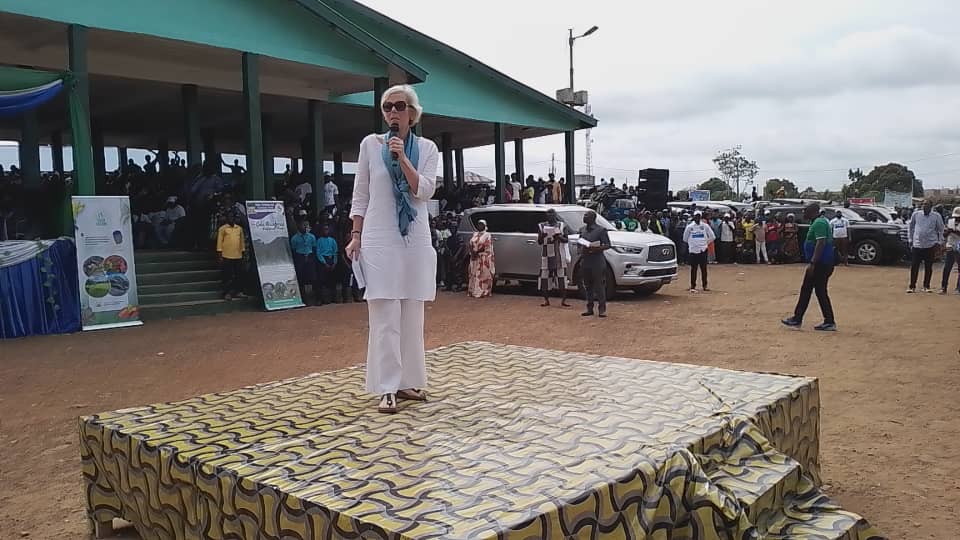
“Agriculture accounts for 72% of global freshwater withdrawal and some huge percent is used by industries. We need to recognize the significant role it plays in food production. Having said that, the FAO is standing ready to always support the government and people of Sierra Leone to defeat hunger,” Mr. Fancie pledged.

